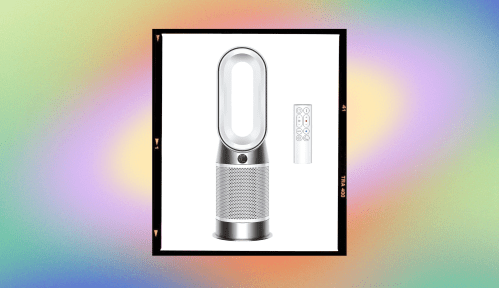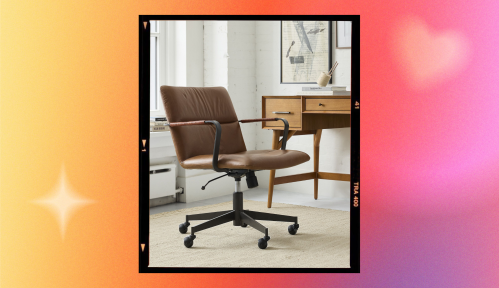Are anxiety weighted blankets the answer to better sleep?
Weighted blankets aren't just added warmth, rather, they're designed to help individuals rest, relax, and prevent anxiety. But do they really work?

Ever finish a really stressful day craving a big hug? Same. Turns out, the reason this happens can all be chalked up to science. The “deep pressure touch” (DPT) effect has been studied for decades as an answer to helping relieve anxiety. And, as research progresses, it’s now being tapped for insomnia as well as a way to help treat ADHD and autism.
According to psychotherapist Ginnie Love Thompson, PhD, “When someone’s upset and you hug them, the hug not only offers emotional security, but research has also proven firm contact of the physical sensory produces an effect that calms the parasympathetic nervous system.”
How does a weighted anxiety blanket work?
Unfortunately, you won’t always have a friend around to give you a tight squeeze like Dr. Thompson suggests (even though that would be great. New startup idea: Uber for Friends?). That’s where the weighted blanket comes in. Your new stand-in BFF or S.O. reduces the body’s secretion of the stress hormone cortisol, which is also responsible for lessened serotonin and dopamine (AKA the hormones that make you feel warm and fuzzy).
While DPT is widely believed to be effective, there aren’t yet loads of studies on weighted blankets specifically. But one small study published in 2006 found that 63 percent of the 32 adults who used the blanket reported a reduction in anxiety after doing so, and 78 percent preferred the blanket to other self-soothing techniques. Another study, published in 2015, found that people wearing a weighted vest (you got me, it’s not a blanket, but it operates on the same principle) saw reduced sympathetic arousal after only a short period of time.
Another reason to tuck yourself in with a weighted anxiety blanket
Although serotonin by itself can help you relax, Dr. Thompson says, it can also be converted by the body into melatonin to help induce sleep. So although once just known for their calming benefits in a professional setting, she suggests that weighted blankets are becoming increasingly popular for the reduction of both stress and insomnia.
Science seems to back up Dr. Thompson’s assertions: According to a 2015 Swedish study, insomniac patients who cuddled up with a weighted blanket saw sleep bout time increase. And what’s more, the participants reported liking the sensation of sleeping with the blanket, found it easier to fall asleep, and said they woke up feeling refreshed.
But don’t worry—it’s not like you’ll swaddle yourself in one and fall asleep in five seconds later. “The blankets are safe to use any time you wish to induce a relaxation—knowing that deep relaxation can lead to sleep, but it also doesn’t have to,” Dr. Thompson explains. Sadly, there’s not a Snuggie version just yet.
How to find the right one for you
But buying a weighted blanket isn’t as simple as just clicking add to cart. Commonly, weighted blankets range between four to 30 pounds, and when choosing one, you should plan for it to account for about 7 to twelve percent of your body weight. Or, try this easy formula for guestimating recommended by the blanket company Harkla: Find 10 percent of your body weight and then add a pound or two. So an adult that weighs 150 lbs, for example, would want to look for a blanket that weighs approximately 16 to 17 lbs.
Start your search for the perfect weighted blanket for your needs with our recs below.
Shop 6 weighted blankets worth the investment here.
Cozy AF Options
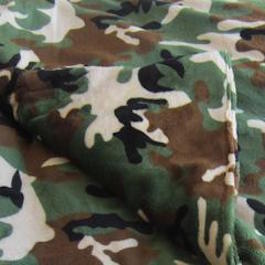
The Magic Blanket Camouflage Minky Blanket $109 and up
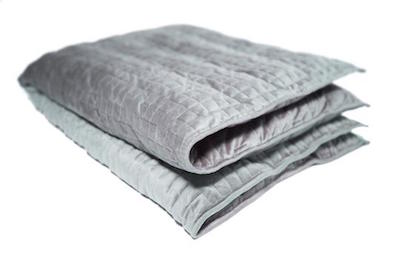
Gravity Blanket $249 and up
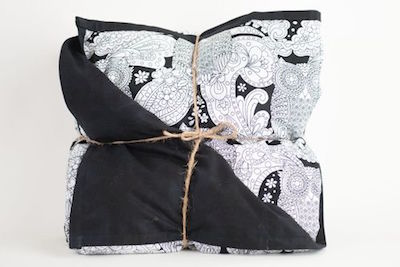
Mosiac Weighted Blankets Black and White Owls Blanket $95 and up
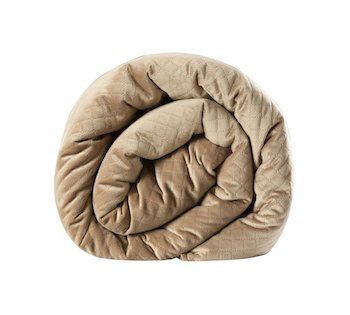
MyBlanquil Weighted Blanket in Taupe $169
ThirdLove Just Launched Bras That Help Balance Your Body Temperature—Here’s Why That’s a Game-Changer for Women in All Life Stages

These Are the Only Types of Underwear You Should Be Wearing, According to Gynecologists
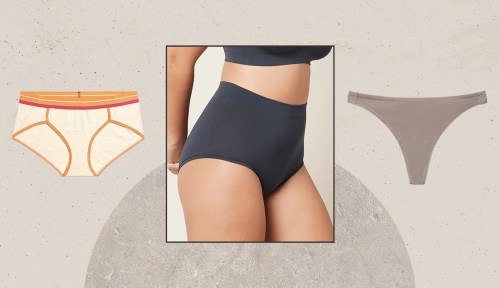
These Are the Summer Essentials You Should Bring With You Every Time You Leave the House, According to a Derm and an RD

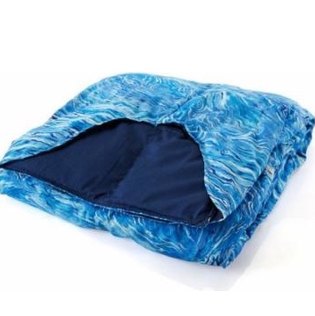
Sleep Tight Weighted Blanket $129 and up
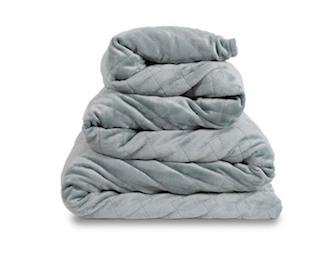
My Calm Blanket $190 and up
Trick out your bedroom by figuring out the best bedding according to your zodiac sign. Also, try these three hacks to help you find the perfect temperature to fall asleep to.
Sign up for the Well+Good SHOP Newsletter
Get exclusive deals on wellness, beauty, fitness, and food products that have been hand-picked by our editors.
Got it, you've been added to our email list.
